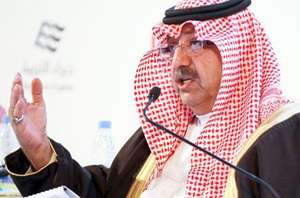 Jeddah, Sep 30: Saudi officials and businessmen on Sunday welcomed Education Minister Prince Faisal bin Abdullah’s statement emphasizing the need to create more job opportunities for Saudis by developing the economy and implementing huge investment projects.
Jeddah, Sep 30: Saudi officials and businessmen on Sunday welcomed Education Minister Prince Faisal bin Abdullah’s statement emphasizing the need to create more job opportunities for Saudis by developing the economy and implementing huge investment projects.
“I would say that Saudization (nationalization) and employment is not the solution,” the minister said in an interview published on Sunday. “The solution lies in creating job opportunities. How can we do that? By developing the economy and expanding areas of work for Saudis to become productive.”
“I fully agree with Prince Faisal,” said Abdul Rahman Al-Zamil, president of the Riyadh Chamber of Commerce and Industry. “We can create more jobs for our citizens by promoting huge investment projects and high-tech services and strictly implementing the Kingdom’s regulations,” he told Arab News.
Al-Zamil, a businessman and industrialist, emphasized the significance of Saudization, saying “Saudi Arabia cannot survive without it.”
“There is a decree that insists that contractors must purchase locally-made goods,” he said. “This will boost national industries. The offset program has stipulated that foreign companies receiving military contracts must invest 40 percent of the contract value in the Kingdom. If this agreement is implemented effectively, we’ll have new projects worth SR60 billion annually with Saudi partnerships.”
Government maintenance contracts are another key area, he said, adding that it would create at least 150,000 jobs for Saudis. According to him, 5.2 million expats have legalized their status during the amnesty period. “As a result of these efforts, the Saudi market has become more stable and expatriates feel more secure.”
Abdelelah Saaty, dean of the College of Business in Rabigh, also backed the minister’s statement while stressing the need to improve the quality of education by providing intensive training to teachers and focusing more on science and technology.
“We should not jump into Saudization. We want quality, not quantity,” he told Arab News.





Comments
Add new comment